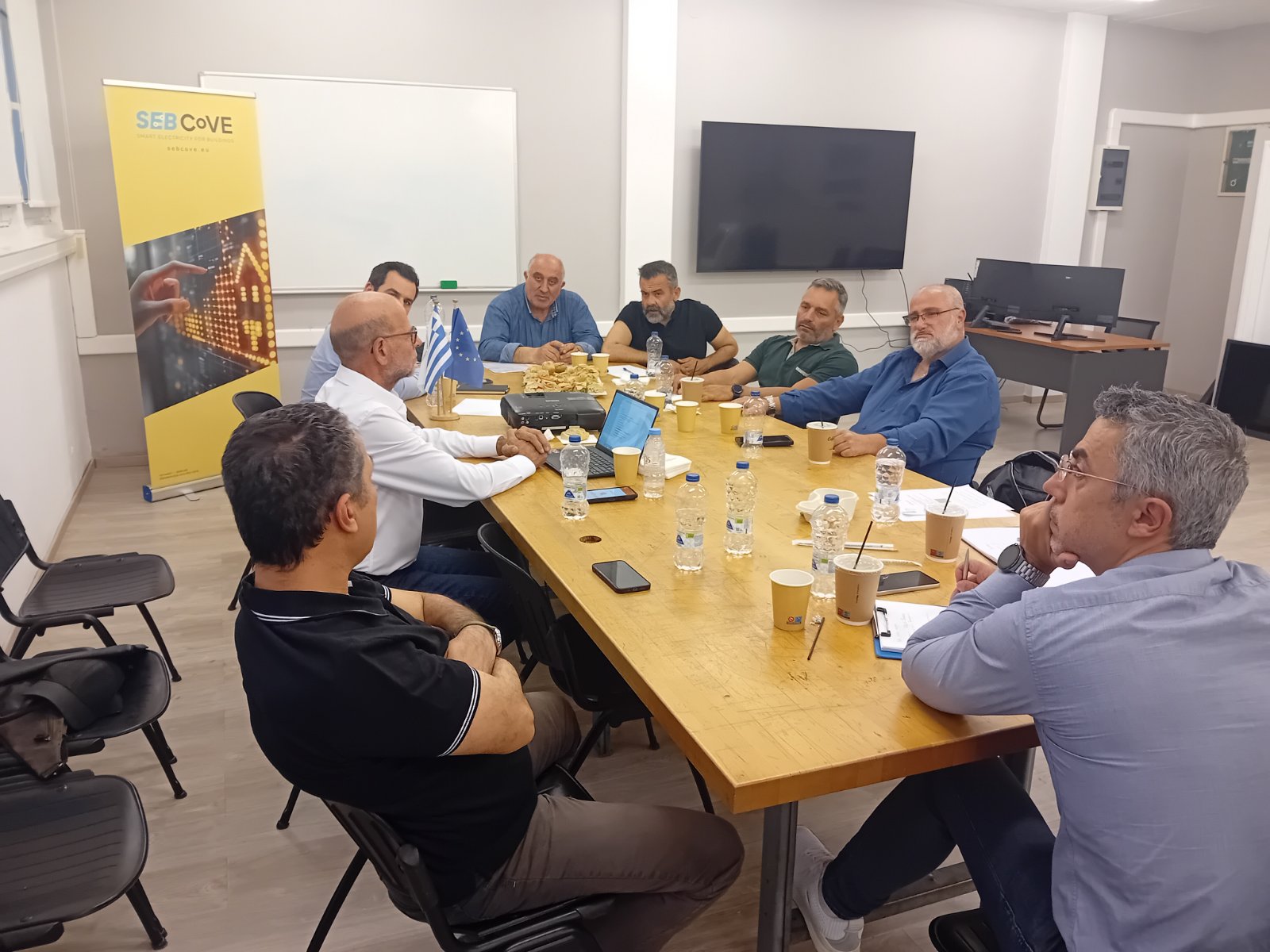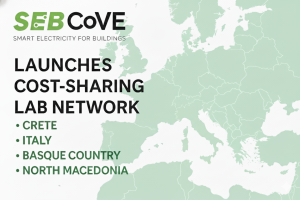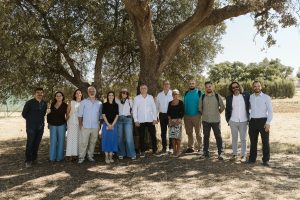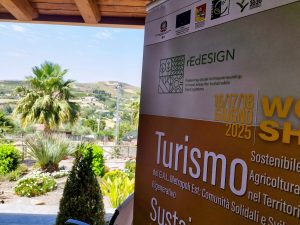
Herakleion, Crete – May 7, 2025
On May 7, Crete’s Knowledge Triangle—uniting vocational education, research, and industry under the SEBCoVE project—marked its transition from planning to piloting with a formal Memorandum of Understanding (MoU) and a suite of new initiatives aimed at reshaping the region’s energy workforce.
This event, a convergence of companies, researchers, and VET providers, wasn’t just a ceremonial milestone. It was a working meeting where microcredentials were dissected, future challenges were aired openly, and new collaborations took shape—solidifying Crete as a leading model for others in the Smart Electricity for Buildings (SEB) sector across Europe.
From Fragmentation to Flow: Building the Triangle
Before SEBCoVE’s intervention, Crete’s VET and energy sectors faced common European challenges: outdated curricula, limited cooperation between educators and innovators, and companies struggling to find workers with relevant, up-to-date skills. The Knowledge Triangle model—co-designed with stakeholders using a design thinking approach—offered a fresh start.
“The gap between training and market demands was growing,” said Konstantinos A., a veteran vocational educator and one of the key figures behind the Cretan pilot. “We needed a structured, continuous way to talk to each other—and SEBCoVE gave us that space.”
Using empathy-based workshops, local actors created vivid personas—like “The Strategic VET Reformer,” “The Knowledge-Driven Innovator,” and “The Collaborative Innovation Catalyst”—that embodied Crete’s stakeholders. These were more than fictional sketches; they helped participants understand each other’s motivations and barriers, paving the way for practical cooperation.
The MoU: A Commitment to Continue
At the heart of the May 7 meeting was the official signing of the regional Memorandum of Understanding. The document lays the foundation for ongoing collaboration, clarifying roles, sharing responsibilities, and enabling access to joint funding and resources.
“Signing the MoU wasn’t just symbolic,” noted Prof. K. Emmanouel from the Hellenic Mediterranean University. “It was an act of ownership. We are not just beneficiaries—we are now co-creators of the SEB skills ecosystem.”
Microcredentials: Short Courses, Big Impact
Among the most discussed elements were the modular microcredentials developed through the SEBCoVE roadmap. These stackable units—covering topics like smart metering, IoT systems in buildings, and energy data analytics – are designed to be flexible, industry-relevant, and EQF-aligned.
Yet the discussion revealed tensions, too. Industry leaders pointed to the slow pace of curriculum reform and the need for real-time feedback mechanisms. “We want graduates who can hit the ground running,” said Stylianos V., president of the Electrical Installers Association of Heraklion. “That means short, hands-on training—updated as the technology changes.”
The pilot’s adaptive learning framework includes regular feedback loops and KPIs, but challenges remain in integrating these into national qualification systems and ensuring recognition across sectors.
Breaking Silos, One Initiative at a Time
Three new initiatives launched at the Herakleion meeting aim to address these issues head-on:
-
A Regional SEB Innovation Forum will convene annually to align VET, research, and industry developments.
-
A Microcredential Validation Board will oversee the evolution and accreditation of training units.
-
A Stakeholder Dashboard will publicly track engagement and performance metrics across the Triangle.
These are supported by a governance structure featuring a Joint Steering Committee and thematic working groups, ensuring the system evolves in response to technological and market shifts.
A Blueprint for Europe?
While Crete takes the spotlight, it is not alone. Parallel efforts in Italy, Spain, and North Macedonia are following the SEBCoVE roadmap, adapting it to their regional realities. In Italy, the pilot is leveraging diverse regional VET strengths; in the Basque Country, the challenge is linking a strong industrial base with training centers; and in North Macedonia, capacity building is underway in a rapidly modernizing energy sector.
What sets Crete apart is its agility: despite limited resources, the region has succeeded in forging genuine collaboration, rooted in trust, dialogue, and shared urgency.
Looking Ahead
As the SEBCoVE Knowledge Triangle pilot enters its next phase, Crete offers a compelling example of how structured collaboration can turn fragmentation into innovation. From microcredentials to governance reforms, the region is proving that even in a small island setting, big systems change is possible—when education, industry, and research move together.
For Europe’s energy transition, it’s a hopeful signal from the South


